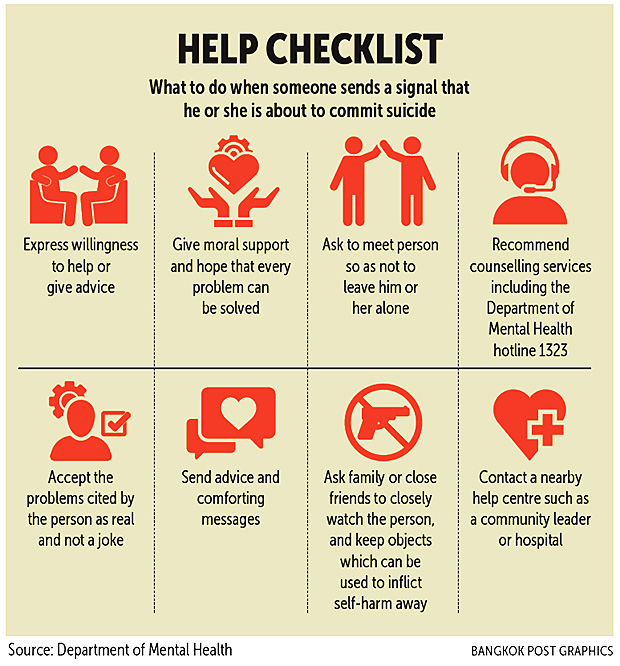New measures are available to cope with the rising trend of people falling victim to mental problems.

The CEO of tech startup Ooca, Kanpassorn Suriyasangpetch, said her company provides an online consultation service that can help people with mental health issues identify them and connect with professional help early, minimising the risk of pent-up stress and nervous breakdowns.
"The service allows customers to talk about their feelings and seek relief from psychologists online for convenience's sake," she said.
People close to patients also should provide emotional support and urge them to seek treatment as soon as possible, she said.
"We have to abide by ethics. Patients can seek out online therapy for temporary relief, but they should also see a doctor in person," she said.
For university students in particular, Ms Kanpassorn said the company has initiated a "Wall of Sharing" project to tackle mental health issues among young people.
"The service is provided free for academic institutions that sign an MoU with Ooca, namely Suranaree University of Technology and Chiang Mai University. More are following. The website is accessible only to university students," she said.
Ms Kanpassorn said other innovations in mental healthcare include robot therapists and mental health applications, but their performance is still limited.
Some people with mental problems not only do harm to themselves but also others. In these cases, police are now exercising more discretion and, where possible, encouraging the perpetrators to seek professional help.
The Mental Health Act, which came into effect in 2008, gives police more options when dealing with mental disorder-related offences, Wuttichai Phumsanguan, a provincial public prosecutor attached to the Office of the Attorney-General, said.
The law was drafted to ensure authorities treat those with mental health issues more appropriately than in the past.
The Mental Health Act details step by step what police and doctors must do when confronted by mentally ill people who offend.
Section 26 allows police to imme- diately take these people to state-run hospitals for a mental evaluation. Doctors are required under Section 27 to diagnose them within 48 hours.
If the suspects resist or try to escape, police can arrest them.
Section 29 enables a treatment committee, made up of psychiatrists, psychiatric nurses and legal experts, to conduct a further diagnosis within 30 days if the suspects are found to be suffering from a mental disorder.
Section 30 empowers authorities to detain them for treatment for 90 days. The period can be extended until they recover.







